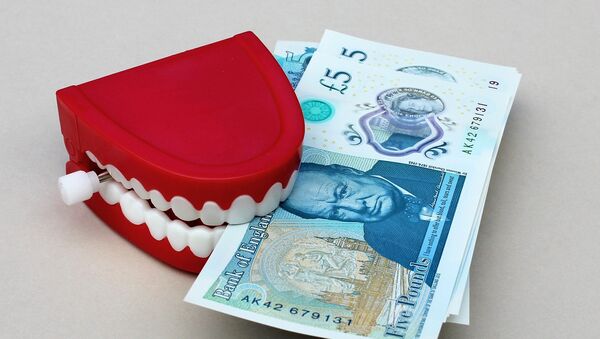The sterling has slightly rebounded against the dollar and euro from its 34-year-old low as a result of an exceptionally volatile trading period, while MPs voted against both Johnson’s hard no-deal Brexit initiative and blocked his calls for a snap election.
I see the pound has recovered this week. On Monday it was below $1.20. Today it's over $1.23. I wonder why! Just think, if we were to revoke #Article50, it could be back to $1.40 or more - like it was in the good old days pre-2016.
— Derek James 🇬🇧🇪🇺🔶🌳#ProParliamentaryDemocracy (@derekjames150) September 5, 2019
The British national currency enjoyed its highest value in six months on Wednesday, reaching $1.2347, after an abrupt overnight surge of 1.4 percent, on the heels of a heated debate in Parliament that prompted the expulsion of 21 Tory MPs. The timing is not accidental, according to City Index analyst Fiona Cincotta, who elaborated on the market now getting a breath of fresh air after the hard-line Brexit has apparently been removed from among the options:
“It is all about politics in the markets at the moment”, she shared with the Telegraph, proceeding:
“It now looks more likely that a coalition of rebel Conservative MPs and opposition parties will take a no-deal Brexit off the table with legislation, which was what the market was hoping for”.
The pound also showed an upward trend as the Upper Chamber agreed to rush a bill whereby the previously stated EU divorce deadline of 31 October would be postponed by three months. The delay, analysts predict, would also have a positive effect on the pound, potentially lifting it to the $1.30 mark, the highest indicator in four months.
Quality trolling of the Prime Minister by pound sterling https://t.co/CEfP7Swp1I
— Will Straw (@wdjstraw) September 3, 2019
“A delay for both Brexit and general election will continue to send the pound higher”, shared Neil Jones, head of hedge-fund currency sales at Mizuho Bank.
However, the rates are still lingering well below (about 8 percent) March’s 2019 highs of almost $1.34, as Boris Johnson suffered a triple defeat in the Commons over the past few days, with the Brexit deal, the key issue in British domestic politics, remaining unresolved. However, John Marley, a senior consultant at Smart Currency Business, believes any predictions may prove wrong given the state of uncertainty in today’s British election drama, which has yet to unfold:
“With the results from any election so hard to forecast and the difficulty of still fixing on a deal, we think further pound rallies are likely to be limited until we have clarity on outcomes”, he summed up.
The UK’s Brexit debate saw a new chapter after the House of Commons rejected Boris Johnson’s snap election proposal Wednesday night, okaying the so-called Benn Bill that stipulates Britain exiting the EU as planned on 31 October, provided there is a comprehensive deal with Brussels.
A day before, the Tories lost their majority in the Commons as a result of heated debate with lawmakers, including rebel Tories, demanding they take full-fledged control of the Brexit negotiations away from the government. In the middle of Johnson’s emotional speech, one Tory MP, Phillip Lee, rebelled, defecting to the Liberal Democrats, which meant that the Tories no longer hold a majority in the Commons.

